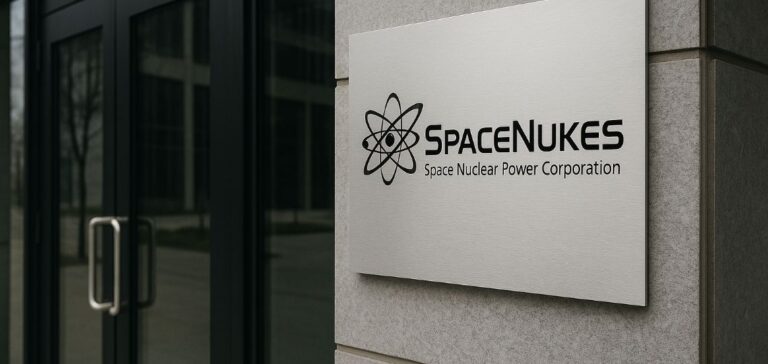Space Nuclear Power Corporation (SpaceNukes) has been named as the industrial partner for the SPAR (Space Power and Propulsion for Agility, Responsiveness and Resilience) programme, led by the University of Michigan under the Space Strategic Technology Institute 3, part of the United States Space Force (USSF) University Consortium. The programme aims to develop nuclear electric propulsion (NEP) technologies for future space platforms for both defence and civilian applications.
The NEP technology combines a nuclear reactor with an electric propulsion system, offering thrust up to 25 times more efficient than conventional chemical rockets, according to SpaceNukes. This performance would allow future vehicles to manoeuvre without major constraints linked to fuel consumption. The programme promotes an operational concept where spacecraft can “maneuver without regret”.
Rare nuclear expertise on US soil
SpaceNukes holds a unique position in the domestic market as the only US company to have designed, built, and tested a new nuclear reactor concept in the past 50 years. In 2018, the company successfully conducted the KRUSTY (Kilopower Reactor Using Stirling Technology) test, demonstrating the viability of its Kilopower system. This modular reactor is designed for long-duration space missions, including on the Moon and Mars.
The new partnership involves the development of second-generation reactor technology. This will be based on higher operating temperatures for both the reactor core and radiators, enabling a significant reduction in the overall mass of the propulsion unit compared with an equivalent solar-powered solution.
Compactness, agility and stealth as key priorities
The more compact architecture resulting from this new technology will allow easier integration into space platforms. Reduced weight and smaller dimensions could enhance rapid deployment capability, improve manoeuvrability, and lower vulnerability to enemy detection systems.
The reactor development will be carried out in collaboration with researchers and students from the University of Michigan. The stated objective is to deliver a game-changing capability in the space sector, for both exploration missions and national security applications. No timeline for operational deployment has yet been disclosed by the programme’s stakeholders.






















